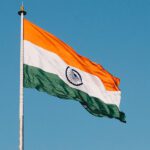
Five years since India legalised gay sex, persistent discrimination means many LGBTQIA+ Indians continue to suffer “mental trauma and alienation”, said one of the Supreme Court judges who lifted the ban.
Indu Malhotra was part of the five-judge constitutional bench that in 2018 unanimously struck down part of Section 377, a law introduced by India’s former British colonial rulers that had stood for almost 160 years.
Malhotra, who is now retired and was only the seventh woman to serve as a Supreme Court justice, said the Sept. 6, 2018 ruling marked “the most momentous day of my career as a judge”.
“The court was packed with people from the LGBTQIA+ community and also some of their parents. There was so much emotion, it was such an atmosphere … There was so much revelry and relief,” she told Openly in an interview by phone from Delhi.
But Malhotra said that while the ruling had ushered in greater acceptance in the cities, LGBTQIA+ Indians still face persecution and the hangover of decades of discrimination including deep psychological scars.
“(Many) people from the LGBTQ+ community, because of alienation and hostility from their family, turn suicidal,” said Malhotra, 67, who served at the Supreme Court from 2018 until her retirement in 2021.
Prior to decriminalisation, Malhotra added, LGBTQIA+ people were afraid of getting blood tests, fearing that being screened for HIV or AIDs could lead to further scrutiny of their sexual orientation.
Many faced intense pressure from their families to undergo so-called ‘conversion therapy’, the now widely discredited practice of trying to change someone’s sexuality or gender identity, Malhotra said.
“I know so many lesbians (whose) parents wanted them to go through conversion therapy or psychological treatment,” she said, adding that while attitudes towards homosexuality were changing, much remained to be done.
“The fear of ridicule (and) stigma has gone at least in the cities (but) I won’t say the same for the smaller towns,” said Malhotra.
Same-sex marriage next?
India’s LGBTQIA+ community is again focused on the Supreme Court as judges consider whether to legalise same-sex marriage in the country of 1.4 billion people, with a verdict expected in the coming weeks.
Prime Minister Narendra Modi’s government has voiced its opposition to recognising gay marriage.
It has said appeals to legalise same-sex marriage represent “urban elitist views” and that LGBTQIA+ relationships are not “comparable with the Indian family unit concept of a husband, a wife and children”.
Due to the ongoing deliberations, Malhotra said it would be inappropriate for her to comment on the same-sex marriage case, which is seen as potentially the biggest development on LGBTQIA+ rights in India since the 2018 ruling.
For Malhotra, the decision five years ago crucially helped embolden more people to be open about their sexuality.
“(What) this judgment changed most radically was acceptance and acceptability by their families and societies, so more and more people came out of the closet,” she said.
Many LGBTQIA+ people have since taken the opportunity to speak publicly about their sexual identity, as the fear of prosecution or blackmail receded, Malhotra added.
“(Their sexuality) is no longer treated as an aberration,” she said. “They don’t feel any longer the need to live in hiding or remain in the closet.”
Reporting by Vidhi Doshi.
GAY TIMES and Openly/Thomson Reuters Foundation are working together to deliver leading LGBTQ+ news to a global audience.
The post Trauma haunts LGBTQ+ Indians years after end of gay sex ban appeared first on GAY TIMES.

0 Comments